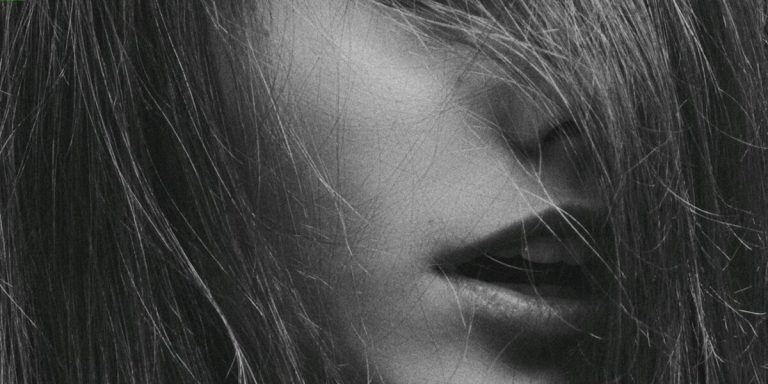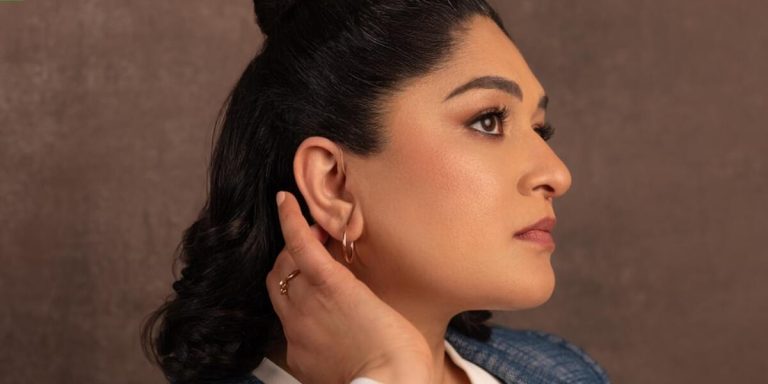Can Hard Water Cause Hair Loss? Unveiling the Truth Behind Common Assumptions
Diving into the realm of hair care, a commonly asked question echoing in many corners is “Can hard water cause hair loss?” This phrase has turned up countless times on search engine queries and it’s time to address this intriguing concept. The idea that something as mundane as the water from your tap could lead to such a distressing issue like hair loss may sound alarming for most.
The need for factual examination becomes eminent as we delve into exploring the correlation between hard water and potential damage to our locks. It’s important not only to understand how our everyday things affect us but also debunk any myths or unfounded assumptions associated with them. By demystifying these common beliefs about hair loss causes, better solutions can be sought out effectively.
Did you know?
Despite being a less common cause, hard water is scientifically established to affect hair health. Minerals like calcium and magnesium in hard water can accumulate on the scalp leading to dandruff, dryness which may potentially accelerate hair loss.
Understanding the Impact of Hard Water on Hair Health
Excessive hair loss can be an alarming issue for many people. It’s important to identify the underlying causes, and one such cause that often gets overlooked is hard water. Hard water is enriched with high quantities of minerals like calcium, magnesium, bicarbonates and sulfates which are not beneficial for hair health.
So how exactly does hard water impact your hair? When you wash your hair continuously using hard water, these surplus minerals get accumulated on your scalp resulting in a layer over the hairs – commonly known as ‘scalp buildup’. This inhibits the natural flow of nutrients to the follicles leading to weaker strands which ultimately results in more frequent breakage or damage.
Additionally, mineral deposits from hard water make it difficult for shampoos and conditioners to work effectively – hence they don’t cleanse properly leaving behind residues that weaken the roots further. Ultimately this sequence contributes significantly towards escalating problems such as thinning of hair shafts and even premature balding. Therefore yes – consuming or utilizing excessively ‘hard’ sourced waters indeed plays an instrumental role when we speak about reasons causing abnormal volumes of shedding or amplified levels of frailty concerning our locks.
Examining Mineral Deposits: How Calcium and Magnesium Affect Follicles
Calcium and magnesium, the primary minerals found in hard water, have a significant impact on your hair health. It’s important to understand this connection as it addresses our central query: can hard water cause hair loss?
Firstly, these two minerals are responsible for building up deposits on your scalp and hair over time. This accumulation hampers the natural growth process of your follicles by blocking them off from essential nutrients needed for growth.
Next comes limescale buildup due to hardness level within water supply sources which could potentially lead onto clogging pores thus inhibiting healthy development causing one’s locks fall away prematurely resulting baldness; unwanted outcome undoubtedly!
Moreover, constant exposure makes strands dry brittle because they inhibit moisture content leading increased damage – another factor contributing towards potential loss situation eventually.
The pH Imbalance Issue: Alkalinity’s Role in Scalp Condition
The pH level of the water we use for washing hair may not be at the forefront of our minds when pondering causes for hair loss. Yet, it plays a crucial role in maintaining optimal scalp condition and health. The importance of understanding alkalinity’s part in this cannot be overstated.
Our scalp naturally maintains a mildly acidic environment (around pH5), which aids its protective barrier function as well as locking necessary moisture within strands; hence, preserving their strength and elasticity.
Hard water typically dwells around an uncomfortable high point – often between 8-10 on the scale – making it more towards alkali side than your skin would care to entertain.
“So can hard water cause hair loss?” you might ask yourself right now. The answer lies unclear but worrisome if studies linking excessive exposure’s effect over time are considered!
Investigating Common Culprits Behind Hair Loss
In the quest to unravel the underlying factors that contribute to hair loss, one cannot overlook certain daily lifestyle aspects. Numerous individuals today are unknowingly exposing their tresses to arguably detrimental environments or substances. Amongst them reigns a prevalent yet underestimated culprit – hard water.
Hard water is characterized by its elevated mineral content, typically magnesium and calcium. While these minerals may not pose significant threats when ingested orally through drinking water, they can have unexpected implications for your scalp and hair health over time when repeatedly used in washing your hair.
Continuous exposure of our delicate strands to such high-mineral-contented hard water wreaks havoc on our mane’s overall texture and strength—leading it prone towards substantial damage over prolonged periods which often manifests as thinning of the strands or even outright noticeable bald patches—a clear sign of alopecia induced by environmental stressors like long-term usage of hard water.
Hormonal Changes and Genetic Predispositions as Primary Factors
When it comes to hormonal shifts, they can occur due to various reasons like pregnancy, menopause or thyroid disorders which directly influence your body’s physiology including the health of your scalp and hair. For instance, during pregnancy women often experience increased hair growth but post-pregnancy when hormone levels normalize again there is an abrupt shift causing excessive shedding known as ‘telogen effluvium’. Similarly for people suffering from thyroid-related issues whether hyperthyroidism or hypothyroidism; both conditions result in drastic fluctuations leading either too much or too little production of hormones thereby affecting the overall quality and quantity of their crowning glory.
On the other hand genetics come into picture mostly based on family history where if you have members who suffered premature baldness then unfortunately chances increase that you might inherit those similar traits showing early signs between late teens till mid-thirties typically characterized by receding frontal line also known as ‘Androgenetic Alopecia’. The culprit here is actually DHT(Dihydrotestosterone) which shortens our follicles’ lifespan making them weak over time resulting into miniaturisation eventually falling off permanently without any new replacements coming up instead leaving behind empty patches around certain areas especially along temple zones henceforth commonly referred as ‘male pattern baldness’.
Environmental Stressors: Pollution, Chemicals, and Hard Water Exposure
The environment we live in impacts our overall health, including the condition of our hair. Distinct elements like pollution, exposure to harsh chemicals and surprisingly enough, hard water can contribute significantly to your mane’s well-being.
Pollution is a known perpetrator when it comes to environmental stressors on hair loss. Daily exposure escalates problems such as dryness, scalp irritation and consequent hair fall. Fine particulates from polluted air tend to settle on the scalp leading up more accumulation of dirt on the follicles which restricts their growth capacity.
But let us now delve into investigating whether “hard water” could be an under-the-radar culprit for your deteriorating crown glory? Could someone actually question ‘can hard water cause hair loss?’ Well yes. According to various researches done recently due its increasing prevalence especially since 2023; remarkably indeed!
Hard Water contains high amounts of minerals such as calcium and magnesium ions among others which form salts upon reacting with soap thereby leaving residue onto anything they come contact with – here includes both: skin & strands alike causing them turn dull brittle eventually breakage too apart experiencing other symptoms signaling towards possible imminent looming threat reducing density volume plus length ultimately.
Mitigating the Effects of Hard Water to Prevent Hair Thinning
In recent years, several theories concerning the causes of hair thinning and loss have been bandied about. One theory that has gained prominence is the impact of hard water on our tresses. Hard water, as we know, predominantly contains high levels of magnesium and calcium which can build up over time to damage follicles causing them to weaken and result in hair thinning.
Understanding this association gives us insight into how mitigating these effects might help prevent or reduce such an unwelcome occurrence. While it may not be feasible for everyone to avoid exposure to hard water altogether – considering its ubiquitous presence across many household supplies including showers; one could certainly adopt a few preventive measures at home itself.
One simple yet effective strategy involves installing a quality showerhead filter designed specifically for reducing hardness levels prevalent in regular tap waters around households today. Filters equipped with activated charcoal or ceramic balls aid by removing excess minerals before they come in contact with your scalp thus lowering potential risks associated with continued usage of untreated, substance heavy waters.
Another proactive approach revolves around maintaining consistent hair care routines incorporating softening shampoos curated preferably without sulfates but richly infused instead with chelating agents known for their ability towards inhibiting mineral deposits along strands while also treating any existing ones concurrently thereby preventing further weakening or breakdown hence controlling overall reduction patterns effectively within users.
Filtering Solutions: Reducing Mineral Content for Healthier Hair
As we delve into the role hard water plays in hair loss, it’s crucial to highlight that filtering solutions can make a significant difference. Reducing mineral content is not just beneficial for your health but also acts as a preventive measure against potential thinning of hair caused by exposure to hard water.
Unarguably, one effective way to mitigate the effects of hard water on hair and scalp health is through installing quality filtration systems at home. These mechanisms work by significantly minimizing high levels of calcium and magnesium salts–the primary culprits known to wreak havoc on your precious tresses.
Often overlooked yet simple step towards curbing issues related with ‘can hard water cause hair loss’ query involves switching from tap showers directly sourced from municipal supplies (read: usually classified as ‘hard’) over to filtered variants instead. This small change could mean saving yourself countless trips down the lane fringed heavily with various topical treatments aimed at reversing damage post exhibition.
Here’s handy list points consider when shopping best filter fit needs:
1. Choose Certified Products—Always opt products gone rigorous testing received certification trusted bodies like National Sanitation Foundation(NSF).
2. Consider The Long-Term Cost – While cost upfront might be little higher certain models, upkeep ongoing maintenance factor future expenditure.
Restorative Treatments: Nourishing Scalp Care to Counteract Damage
Hard water can indeed have a detrimental impact on the health of your hair, often leading to thinning and potentially contributing to more significant incidents of loss. But fear not! There are restorative treatments available specifically tailored for nourishing scalp care that counteract this damage.
A regular routine incorporating high-quality products formulated with essential oils can be highly effective in combating hard-water induced hair problems. The natural ingredients work toward restoring the vitality and strength of your tresses by replenishing vital nutrients lost due to exposure to minerals present in hard water.
One such oil is coconut oil which has been celebrated as an excellent treatment option against dryness caused by hard water. It moisturizes strands while also acting as a barrier against future mineral deposit build-up – saving you from worrying ‘can hard water cause hair loss?’. Applying it pre-shampoo ensures the hair is protected during washing, keeping harmful elements at bay while allowing healthy hydration.
Apple cider vinegar rinse after shampooing helps restore pH balance disrupted as a result of prolonged contact with alkaline tap waters common in urban areas nowadays. This simple solution leaves both scalp and length feeling refreshed thus reducing excessive breakage – one step closer towards preventing any potential for unfavorable fallout!
Conclusion
So, to answer the burning question – can hard water cause hair loss? The evidence suggests a strong correlation. While it may not be the sole perpetrator in your battle against thinning tresses and receding hairlines, it definitely seems guilty of aiding and abetting. But don’t let this verdict wake you up at night with nightmares of baldness! By implementing simple changes like installing shower filters or using clarifying shampoos, we can turn this tide.
And remember, there is so much more to understand about what causes our lock’s downfall than just blaming poor old H2O! There are plenty of culprits out there causing havoc on our heads – from hormones to diet choices; stress levels to genetic factors. Make sure that you’re informed by browsing around our website for a comprehensive look into other potential “Hair Loss Causes”. With knowledge comes power – time for us all take control over our beautiful crowns once again!







